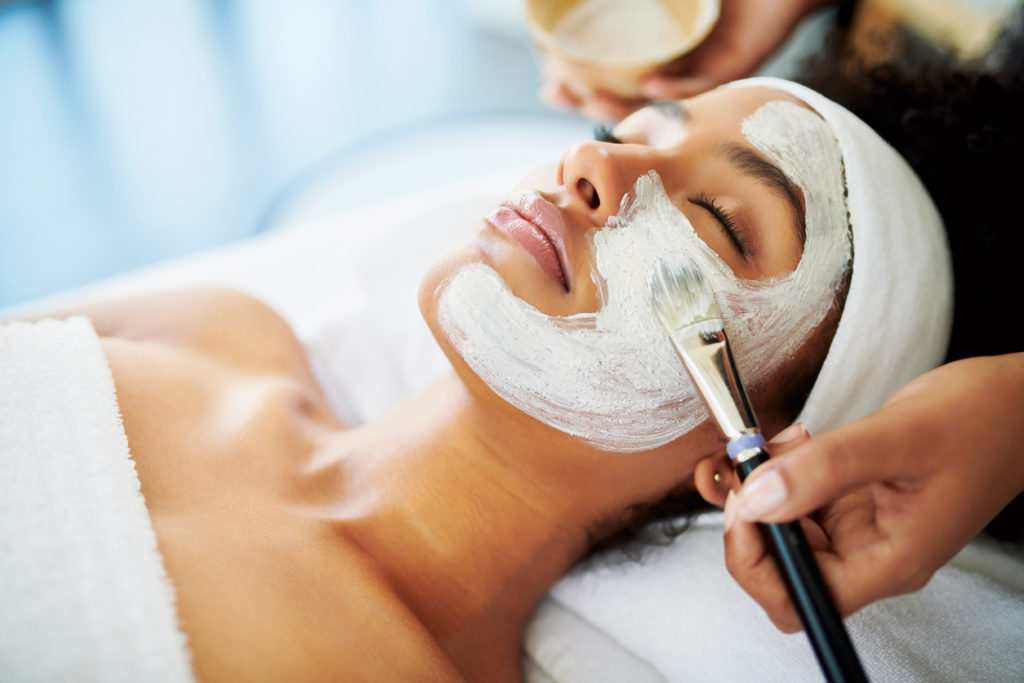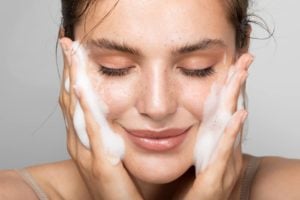We’re a month into the start of a new decade, a perfect time to tweak your daily health and wellness routine with the goal of experiencing optimum long-term health and wellness. This blog looks at ways to improve your health, enhance your vitality, and nourish your spirituality on a daily basis so that you look better, feel better, and enjoy a healthier lifestyle. So read on to find some key health and wellness tips for mind, body, and soul in 2020 and beyond.
Establish a morning routine
This year, replace the daily morning chaos with your own early morning routine. By starting the morning off with calm and serenity, you’ll use the time that belongs exclusively to you, allowing yourself to ease gently into the day. Your early morning time could involve reading a book, working on a hobby, practicing yoga, meditating, or simply doing nothing. The key is to reserve time for yourself with no external interruptions — perhaps as little as 20 minutes. For some examples, The Washington Post describes several professionals who get up early to perform their quiet, early-morning routines in its article, “The Power of a Slow Morning.”
Connect with nature
According to an empirical study cited by Psychology Today, connecting with nature in some form elevates your mental health. It could be as simple as taking time to admire a tree or a flower on your way to work.
We would also add that connecting with nature includes taking your dog for a walk in the park, tending your garden, or watching the deer and birds in your backyard. And whether you realize it or not, you’re actually connecting with nature when you visit orchards and farms to pick produce for yourself and your family.
Establishing a connection with the natural world is a sign of good mental health, Psychology Today states because you’re able to move beyond yourself and develop an awareness for living things around you. This newly found awareness could then lend itself to paying close attention to the state of the environment, the welfare of your pets, or your relationship with the world in general.
Protect your vision
It’s common knowledge that we can protect our eyes by wearing sunglasses when we go outside, but there are a lot of myths about protecting your vision as well. Harvard Health reviews a few of these myths about protecting your eyesight. For instance, eye exercises won’t correct your sight, as a strong sense of sight depends upon factors such as genetics and the shape of your eyeball.
In order to keep your eyes healthy, adults should get them checked at least every two years — in some cases even more frequently — allowing your doctor to detect early conditions that can lead to blindness such as diabetes and glaucoma. And as the above-linked Harvard Health article confirms, you can indeed eat certain foods that support eye health.
But while the vitamin A content in carrots is good for the eyes as is commonly believed, leafy greens and other vegetables that are rich in antioxidants such as vitamins C and E are even better choices. They won’t correct nearsightedness or farsightedness, but they may possibly protect our eyes against cataracts and age-related macular degeneration.
Be kind to your skin

Make 2020 your year for being mindful of your skin, the largest organ of the body. For starters, protect your skin by wearing at least PDF 30 whenever you’re out in the sun. The Mayo Clinic makes additional suggestions, such as limiting your bathing time so that your skin doesn’t lose its moisturizing oils, avoiding strong soaps, and patting your skin dry.
Unfortunately, here’s the bad news for all those smokers out there: As the Mayo Clinic’s article reveals, it’s no myth that smoking is bad for the health and vitality of your skin. And it doesn’t just contribute to wrinkle formation. Smoking causes the tiny blood vessels in the skin’s outermost layers to narrow, decreases blood flow, and makes your skin look paler. It also damages collagen and elastin, fibers within the skin’s structure which provide strength and elasticity, and which contribute to a vibrant and youthful appearance.
So if you’re concerned about what smoking can do to your skin, 2020 may be a good time to kick the habit.
Take the biotin hype with a grain of salt
The water-soluble nutrient biotin (also known as vitamin H and B7) is an essential vitamin that is critical for breaking down glucose, amino acids, and fatty acids. It has received a lot of attention in recent years for contributing to strong, healthy hair and nails, and there are numerous biotin-fortified products on the market.
If you’re a meat-eater, however, you can get find great sources of biotin in meat proteins such as ground beef, beef liver, and pork. Biotin is also abundant in cooked eggs, salmon, sweet potatoes, avocado, nuts, and seeds, and smaller amounts of biotin are found in other healthy foods. Despite all the hype, the Harvard School of Public Health tells us more research needs to be done on whether consuming higher biotin amounts can treat hair loss (alopecia), and the jury’s still out whether taking biotin supplements significantly improves your hair and nails. That being said, biotin is necessary for the normal functioning of the body.
It’s possible to get an adequate amount of biotin through your diet, though, and cases of biotin deficiencies in the US are rare. And recently, the US Food and Drug Administration warned that taking higher amounts of biotin in your system can interfere with some lab results, so before you start popping those biotin supplements, check with your doctor first.
Devise an exercise plan
Whatever nutrition plan you follow, you need to integrate regular exercise into your daily routine. The Department of Health and Human Services tells us that in order to stay physically healthy, the average adult requires at least 150 minutes per week of moderate physical activity. This doesn’t mean you have to be running to the gym every day. If you’re not a gym person, you can still get enough moderate exercise by devising a fitness plan and staying active during the week. Your exercise can include a daily walk, lifting weights at home, hiking with your kids, or starting an early morning yoga routine. Pick a routine that’s right for you, and as always, it’s advisable to consult with your doctor when starting a new exercise plan.
Do your research before adopting a drastic diet plan
The last two decades, in particular, witnessed a surge in the popularity of the ketogenic diet, the paleo diet, and its spin-off, the Autoimmune Protocol (AIP). Although each of these plans has its own devout life-long followers, medical experts generally agree that more studies need to be done before recommending that people adopt them as long-term solutions. Here are just a few of the diets that have been making the headlines lately:
A brief overview

The keto diet: A ketogenic diet is high in proteins and fats, severely restricting your carbohydrate intake. After several days of cutting out the carbs, your body enters into a state of ketosis, burning fat instead of sugar and causing rapid weight loss. The medical community finds the ketogenic diet to be effective in fighting obesity when used as a short-term weight loss plan. However, some medical experts believe that following a keto diet, in the long run, can be harmful to one’s health. It was originally designed to be a medical or therapeutic diet, and members of the medical profession emphasize that keto is not for everyone.
The paleo diet: Followers of the paleo diet limit themselves to eating only the food they believe were available to humans during the Paleolithic Era or Old Stone Age. Humans during this time were hunters and gatherers before farming was established, so the diet restricts all grains — and for the strictest paleo followers, this means no beer. While the proponents of paleo are many, so are its critics, who state that both the digestive system of humans and the foods they ate during Paleolithic times were different. For those reasons, they say, it’s not feasible to attempt to duplicate that diet today.
The Autoimmune Protocol (AIP): Stemming from the paleo diet, the AIP is even more restrictive, designed for those who suffer from autoimmune disorders. Like the other diets described above, the AIP has caught on, but there some medical professionals are wary of its proposed scientific basis and question its effectiveness in addressing autoimmune disorders.
In short, followers of each of these diets are passionate about the results, but their critics argue that there is still a need for ongoing research to verify that their benefits outweigh the risks.
Go for balance
Unless directed by your physician, many mainstream nutritionists simply recommend that you pick a healthy nutritious food plan that includes meals consisting of one-fourth proteins and one-fourth carbohydrates, while the other half of your plate should consist of fresh fruits and vegetables.
Avoid eliminating entire food groups
In general, nutritionists are wary of diets that exclude an entire food group or that instruct you to limit your consumption to just a few “superfoods.” Consult your doctor before you start a new food plan that excludes any of the three macronutrients (fats, carbohydrates, and proteins), especially if you have health or medical issues. Although more research needs to be done on the contributions and benefits of diets like keto, paleo, and the AIP, nutritionists believe that at best, they may not be right for everyone — and at worst, could deprive one’s body of necessary nutrients.
In conclusion, it’s time to make 2020 a year of balance where you nurture mind, body, and soul to customize your own health, beauty, and wellness routine.
Build harmony within your body
Despite the popularity of elimination diets, vitamin supplements, and an action-packed day, finding quiet time, using moderation, and creating balance are key to living a healthier lifestyle. Also, keeping things in perspective plays a part in building a harmonizing lifestyle that nourishes the mind, body, and soul.
Instead of viewing the different elements of your health and wellness plan for 2020 as routines that deprive of pleasure and that you must merely endure, adopt daily habits that make you feel nurtured, energized, and vibrant, enabling you to establish health, strength, and beauty from the inside out.






